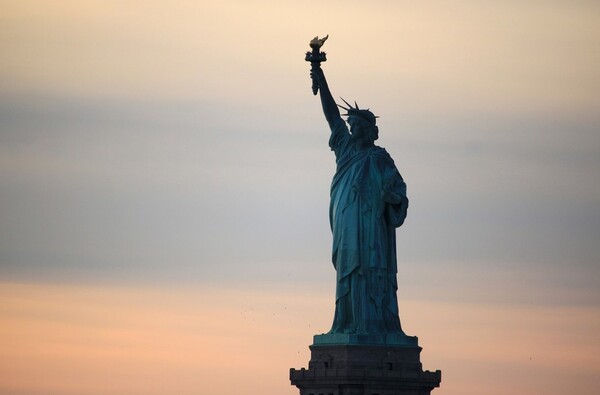
(function(d, s, id) { var js, fjs = d.getElementsByTagName(s)[0]; if (d.getElementById(id)) return; js = d.createElement(s); js.id = id; js.src = “https://connect.facebook.net/en_US/sdk.js#xfbml=1&version=v3.0”; fjs.parentNode.insertBefore(js, fjs); }(document, ‘script’, ‘facebook-jssdk’)); –>
–>
December 14, 2023
There are two great battles dominating Western nations today. The first is political and involves a contest between freedom-minded citizens and an ever-expanding State. The second is cultural (or perhaps, more accurately, spiritual) and involves a contest between fear-driven dogma and inspiration-driven ideals. Globalization, or the secular religion dedicated to the concentration of power into the hands of an elite few, runs on the energy of fear. Liberty movements that abhor the current trend toward a new-world-order framework intent on micromanaging human activity run instead on human ideals. Of the two battles now raging, the cultural battle is more significant because its capacity for influencing hearts and minds will drive the future political outcome. In a real sense, we are in a war between what to fear and what to cherish.
‘); googletag.cmd.push(function () { googletag.display(‘div-gpt-ad-1609268089992-0’); }); document.write(”); googletag.cmd.push(function() { googletag.pubads().addEventListener(‘slotRenderEnded’, function(event) { if (event.slot.getSlotElementId() == “div-hre-Americanthinker—New-3028”) { googletag.display(“div-hre-Americanthinker—New-3028”); } }); }); }
There are those who see the rapid advancements of the national security surveillance state, the unveiling of artificial intelligence systems capable of monitoring behavior and censoring speech, and the emergence of central bank digital currencies as determinative proof that a centralized, technocratic “ruling class” will soon be capable of enforcing total social control. The power of fear-inducing intimidation rests with its appearance of inevitability, if not invincibility.
Yet personal experience teaches people that fear is no match for inspiration. The soldier on the battlefield fighting for freedom will charge forward when the conscripted soldier hesitates. The dissident caught behind another Iron Curtain will risk life and limb when the Iron Curtain’s servants risk neither. Steadfast service to God will give a man an unearthly armor when belief in nothing gives man nothing. Citizens threatened into compliance are no match for citizens inspired to reach for higher ideals. The former will minimize the costs that must be endured, while the latter will come to find no cost too great for success. Futures founded on fear crumble when tested; societies formed through mutual support of human ideals stubbornly endure.
Before Franklin D. Roosevelt memorialized the phrase at his presidential inauguration, it was the great sixteenth-century French writer, Michel de Montaigne, who expressed the sentiment that the only thing we have to fear is fear itself. By the time FDR implored Americans to find courage in the face of hardship, the idea that fear should be confronted and vanquished was a common refrain for many great wordsmiths who inspired entire generations.
‘); googletag.cmd.push(function () { googletag.display(‘div-gpt-ad-1609270365559-0’); }); document.write(”); googletag.cmd.push(function() { googletag.pubads().addEventListener(‘slotRenderEnded’, function(event) { if (event.slot.getSlotElementId() == “div-hre-Americanthinker—New-3035”) { googletag.display(“div-hre-Americanthinker—New-3035”); } }); }); }
Victorian-era poet William Ernest Henley urged his countrymen not only to persevere in the face of danger (“In the fell clutch of circumstance / I have not winced nor cried aloud. / Under the bludgeonings of chance / My head is bloody, but unbowed.”), but also to become unconquerable: “It matters not how strait the gate, / How charged with punishments the scroll, / I am the master of my fate, / I am the captain of my soul.” Rudyard Kipling, one of the most famous writers at the turn of the twentieth century, placed fearlessness at the top of his poetic compilation of heroic virtues: “If you can keep your head when all about you / Are losing theirs and blaming it on you…” Henley and Kipling echoed Montaigne’s critical observation that nothing shall ever be lost so long as one remains defiant and refuses to capitulate.
In contrast, today’s “ruling class” insists that there is no shortage of things to fear or people to blame, and it seeks humanity’s total capitulation. “Defiance” has become “politically incorrect.”
For fifty years, politicians and oligarchs in search of an excuse to seize greater control over economic activity have urged humanity to fear the weather. If the recent government-induced hyperventilation over COVID is a harbinger of things to come, politicians and oligarchs will continue to urge humanity to fear pathogenic illnesses. What if the spirit of Montaigne, Henley, or Kipling instead gripped today’s generations as they did in the past? Children would not be indoctrinated to fear a “climate apocalypse”; they would be assured that humanity is never more ingenious than when it is tested. Grown adults would not be infantilized to hide under their beds at the sound of a sneeze; they would be encouraged to “keep calm and carry on” for the sake of their families and communities. Can you imagine political leaders telling those generations who endured the Great Depression and two world wars that the obstacles before them were too daunting to survive? Yet political “leaders” today throw their hands up in the air at the first sign of trouble and scream for everyone to hear, “We’re all gonna die!”
State-controlled news media blare continuous warnings that citizens should fear racism, “white supremacy,” misogyny, imperialism, colonialism, paternalism, Christianity, Israel, hydrocarbon energy, heterosexuality, capitalism, exercise, Karens, Chads, Western civilization, personal liberty, country music, Southern states, suburban moms, political speech, scientific debate, masculinity, democratic elections that don’t elect Democrats, Donald Trump, limited government, nuclear families, gun-toting Americans, psychologically healthy adults, Christmas decorations, assimilation, accurate history, cultural appropriation, national borders, due process for conservatives, misinformation, malinformation, disinformation, and stable marriages. On the flip-side, the atheistic priests of the “woke” church insist that opposition to either gay pseudo-marriage or the new fad of “transgenderism” represents some kind of irrational “phobia” that must be overcome immediately. In other words, the new world order demands that Westerners fear almost everything except bearded men crushing women half their size in competitive sports. Talk about lunacy!
Telling people what to fear and whom to blame may be an effective short-term strategy, but it can never convincingly win hearts and minds. Whatever darkness troubles a man’s soul, further darkness will not lead him to salvation. You do not forge a community without some ideal flickering in the background for all to see. You do not convince a fighting force to advance over the next hill, unless they are confident that whatever they find can also be overcome. You do not produce healthy citizens capable of tackling the impossible unless you first teach children to be resilient and fearless.
That the Marxist globalists in charge of the West today preach none of these lessons is definitive proof of one thing and one thing alone: they seek timid souls who may be easily conquered, not courageous human beings who can do anything.
‘); googletag.cmd.push(function () { googletag.display(‘div-gpt-ad-1609268078422-0’); }); document.write(”); googletag.cmd.push(function() { googletag.pubads().addEventListener(‘slotRenderEnded’, function(event) { if (event.slot.getSlotElementId() == “div-hre-Americanthinker—New-3027”) { googletag.display(“div-hre-Americanthinker—New-3027”); } }); }); } if (publir_show_ads) { document.write(“
If you want to prepare humanity for the battles ahead, you encourage people to value honor, integrity, personal freedom, imagination, initiative, determination, self-respect, and respect for others. You encourage them to be humble before God and to be eternally grateful for the blessings of life shared by all. You teach them the difference between right and wrong, vice and virtue, sin and redemption. You teach them how to pray and how to be repentant. If you want humanity to fail, curl up in a ball, and wither away, you forbid the teaching of any of these things. The globalists who despise free speech and adore censorship will continue to claim that they are “protecting” people from harm. Make no mistake: they are the harm.
So long as we remember what to cherish, no amount of government-engineered fear can succeed in subduing us all. You will find people who believe all is lost. You might even begin to wonder if all is lost, as well. Yet nothing can be lost if you stand firmly beside what is true. That kind of indomitable spirit is what the globalists most fear. Even now, as they make plans for the dystopian future that they seek, they see the rumblings of rebellion throughout the West. They’ve done their best to ignore the Tea Party, Brexit, Trump, and growing freedom movements from the Netherlands to Argentina. Yet in the dark recesses of their minds, they wonder how many people might resist and refuse to go away. They are rightly afraid of the unconquerable.

Image: JSMed via Pixabay, Pixabay License.
<!–
–>
<!– if(page_width_onload <= 479) { document.write("
“); googletag.cmd.push(function() { googletag.display(‘div-gpt-ad-1345489840937-4’); }); } –> If you experience technical problems, please write to [email protected]
FOLLOW US ON
<!–
–>
<!– _qoptions={ qacct:”p-9bKF-NgTuSFM6″ }; ![]() –> <!—-> <!– var addthis_share = { email_template: “new_template” } –>
–> <!—-> <!– var addthis_share = { email_template: “new_template” } –>





